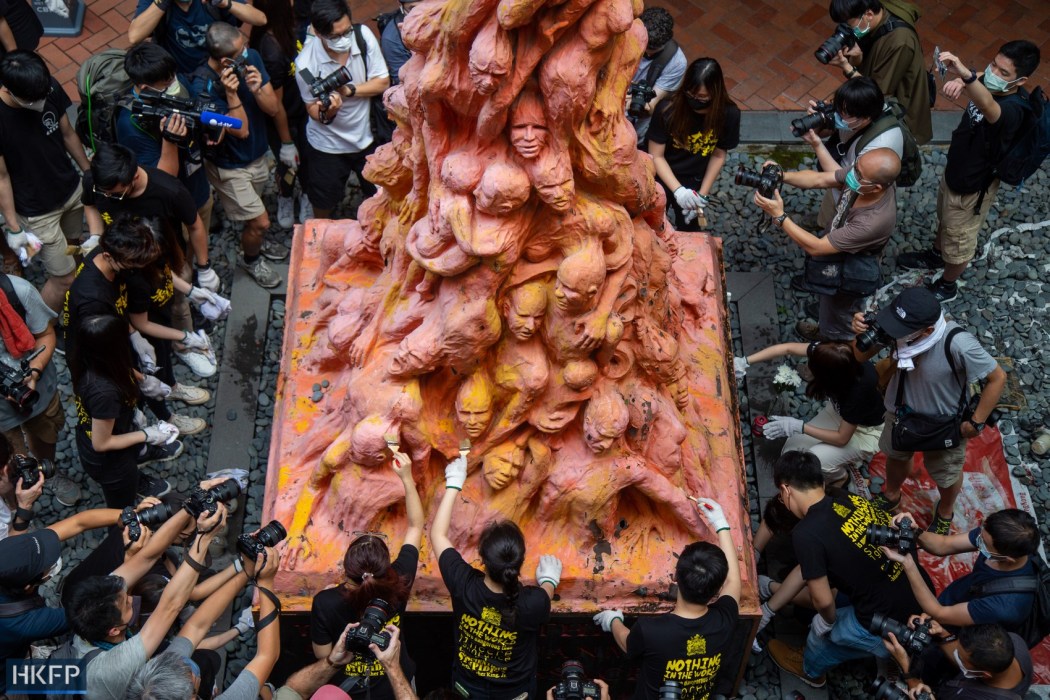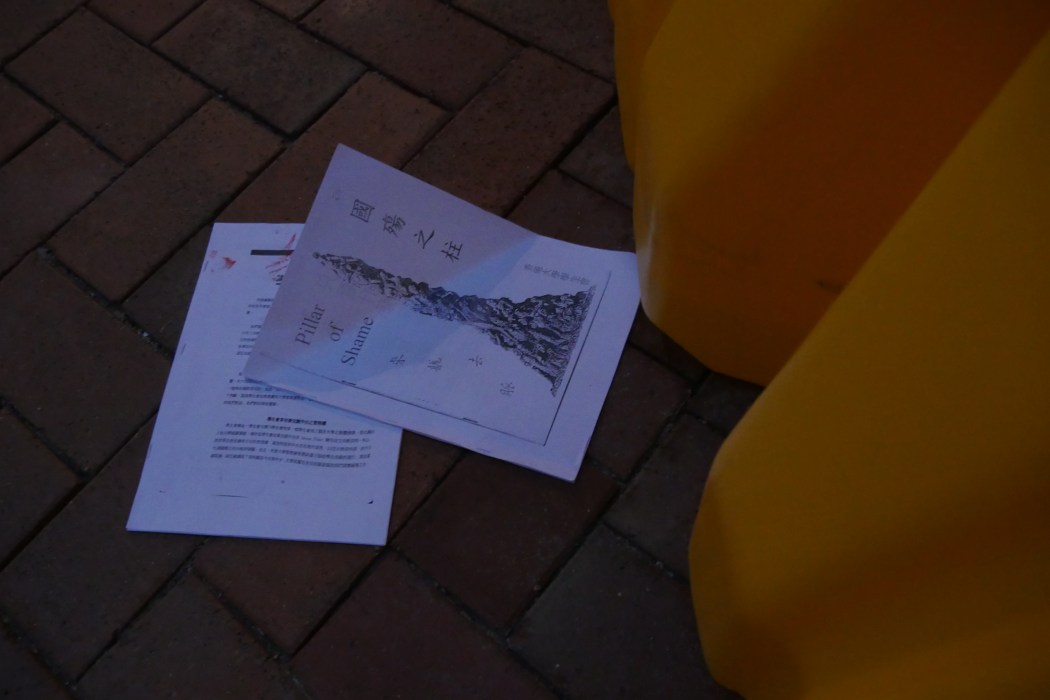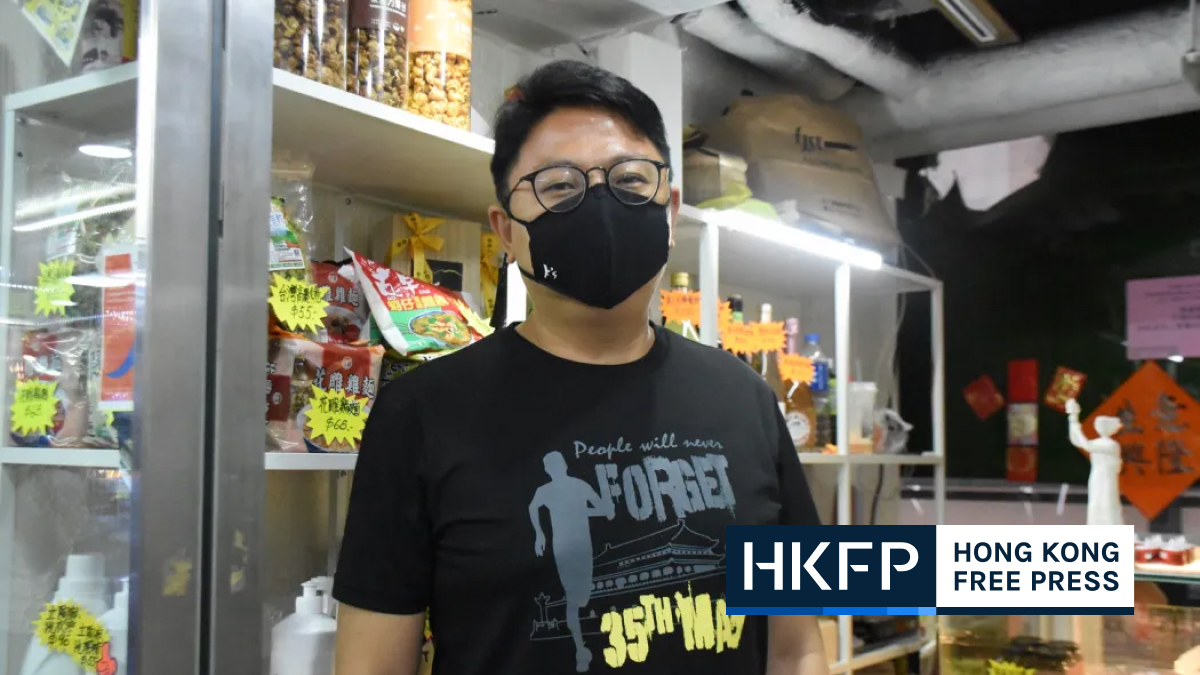A mainland Chinese postgraduate student has been deported from Hong Kong after completing a six-month prison term over a sedition charge related to plans to display a Tiananmen banner.

Twenty-three year old law student Zeng Yuxuan had been in remand since this June over a separate sedition charge for allegedly mourning the death of Leung Kin-fai, who stabbed a police officer on July 1, 2021 before taking his own life.
Zeng’s full name was mentioned in the Security Bureau’s statement on Thursday, which read that she was “removed from Hong Kong” in accordance with the Immigration Ordinance. The bureau cited a clause in the ordinance stating that removal orders may be made against “an undesirable immigrant who has not been ordinarily resident in Hong Kong for 3 years or more.”
Her initial sedition charge was withdrawn, and Zeng was instead convicted in September after pleading guilty to attempting to do an act with a seditious intention by planning to display a large banner relating to a 1989 Tiananmen monument on the anniversary of the crackdown.
Pillar of Shame
The banner display was part of an international campaign led by Jens Galschiøt, the Danish artist who created the the Pillar of Shame – an eight-metre sculpture commemorating the victims who died in the 1989 crackdown.
The sculpture was quietly removed by the University of Hong Kong citing safety concerns in December 2021. It had stood on the campus for 24 years before the removal.

In May, it was seized by the city’s national security police as evidence for an incitement to subversion case involving the organiser of Hong Kong’s annual Tiananmen crackdown vigil and its three leading members Lee Cheuk-yan, Albert Ho, and Chow Hang-tung.
The court heard that Zeng had done “meticulous planning” to showcase the banner as she had brought tools, conducted site checks, and booked a nearby hotel room. She also informed the press about the plan to raise publicity and came up with contingency plans in case she botched the plan.
Sedition is not covered by the Beijing-imposed national security law, which targets secession, subversion, collusion with foreign forces and terrorist acts and mandates up to life imprisonment. Those convicted under the sedition law – last amended in the 1970s when Hong Kong was still a British colony – face a maximum penalty of two years in prison.
Support HKFP | Policies & Ethics | Error/typo? | Contact Us | Newsletter | Transparency & Annual Report | Apps
Help safeguard press freedom & keep HKFP free for all readers by supporting our team

LATEST FROM HKFP
HKFP has an impartial stance, transparent funding, and balanced coverage guided by an Ethics Code and Corrections Policy.
Support press freedom & help us surpass 1,000 monthly Patrons: 100% independent, governed by an ethics code & not-for-profit.







